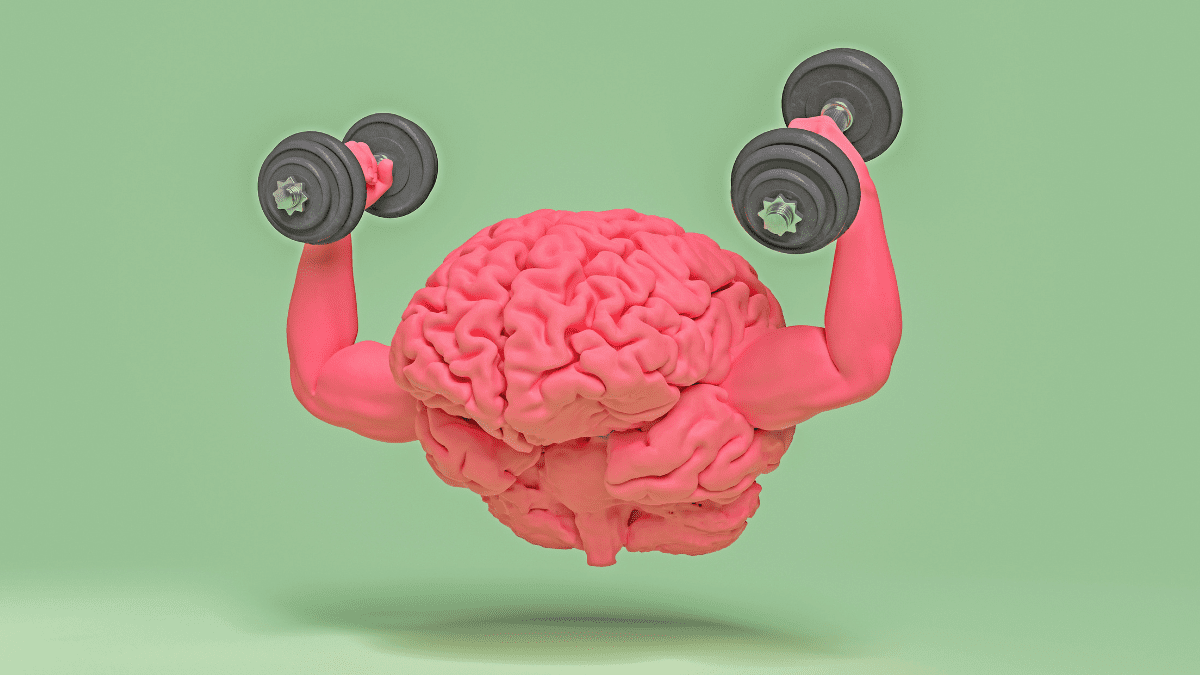Building Emotional Intelligence: The Truth About You
Building emotional intelligence can transform your relationships. Discover why your relationships struggle, the role of self-awareness, and practical steps to improve communication, trust, and emotional connection.

Building emotional intelligence is the key to stronger, healthier relationships, yet many people struggle with it. If your relationships feel strained, full of misunderstandings, or emotionally exhausting, it may be due to a lack of emotional awareness and communication skills.
Many assume relationship problems stem from external factors, but often, the real issue is a lack of self-awareness, poor emotional regulation, and ineffective communication. Emotional intelligence is the foundation of lasting connections, yet most of us were never taught how to develop it.
In this article, we’ll explore why low emotional intelligence damages relationships and how you can fix it. By improving self-awareness, empathy, and communication, you can transform the way you connect with others and build deeper, more fulfilling relationships.
What is Building Emotional Intelligence About?
Building emotional intelligence is about understanding and managing both your own emotions and those of others. It’s a skill that influences how you communicate, handle conflicts, and develop meaningful relationships.
Psychologist Daniel Goleman, who popularized the concept of emotional intelligence (EQ), identified five key components that shape emotional awareness and social interactions:
1. Self-Awareness
Understanding your own emotions, triggers, and patterns is the first step to emotional intelligence. Without self-awareness, it’s easy to react impulsively, misunderstand feelings, or repeat unhealthy behaviors in relationships.
How to improve self-awareness:
- Keep a journal to track emotional responses.
- Practice mindfulness to recognize emotions in real time.
- Reflect on past conflicts and what triggered them.
2. Self-Regulation
Managing emotional reactions is crucial for maintaining healthy relationships. Those who struggle with self-regulation often lash out, shut down, or suppress emotions instead of handling them constructively.
Ways to develop self-regulation:
- Pause before responding in emotionally charged situations.
- Use deep breathing or meditation to calm intense emotions.
- Channel frustration into problem-solving instead of blame.
3. Motivation
Emotionally intelligent individuals are driven by personal growth rather than external validation. They set meaningful goals and remain resilient, even in difficult situations.
How to cultivate motivation:
- Focus on long-term relationship growth instead of instant gratification.
- Develop a mindset of continuous learning and self-improvement.
- Reframe challenges as opportunities to strengthen emotional intelligence.
4. Empathy
Empathy is the ability to understand and relate to the emotions of others. Without it, relationships suffer from disconnection, misinterpretation, and a lack of emotional support.
How to build empathy:
- Actively listen without interrupting or formulating a response too soon.
- Ask open-ended questions to understand a person’s feelings.
- Try to view situations from the other person’s perspective.
5. Social Skills
Strong social skills are essential for building trust, resolving conflicts, and maintaining meaningful relationships. Emotionally intelligent people communicate effectively and handle disagreements without unnecessary drama.
How to improve social skills:
- Practice assertive communication—express your needs while respecting others.
- Work on nonverbal cues like eye contact, tone, and body language.
- Learn conflict resolution techniques to navigate difficult conversations.
Emotional intelligence is not fixed—it’s a skill that can be developed. In the next section, we’ll explore why relationships struggle when EQ is low and how to recognize the signs of emotional disconnect.
Self-awareness is the foundation of emotional intelligence, allowing you to recognize emotions in real time. Research shows that mindfulness can rewire the brain to enhance emotional regulation. Learn more in our article on Mindfulness and the Brain: The Science of Transformation.
Building Emotional Intelligence: Why Your Relationships Struggle
Building emotional intelligence is essential for maintaining healthy relationships, yet many people struggle without realizing it. When emotional intelligence is low, relationships become filled with misunderstandings, unresolved conflicts, and emotional disconnect. Here are some of the most common reasons why relationships suffer when EQ is lacking.
1. Lack of Self-Awareness
If you don’t understand your own emotions, it’s difficult to communicate them effectively. Many people repeat unhealthy relationship patterns because they fail to recognize their own triggers and emotional blind spots.
Signs of low self-awareness in relationships:
- You often feel misunderstood and struggle to put your emotions into words.
- Instead of processing your feelings, impulsive reactions take over.
- Blaming others for relationship issues comes easily, making self-reflection a challenge.
2. Poor Communication Skills
Effective communication isn’t just about talking—it’s about expressing yourself clearly and listening with intention. A lack of emotional intelligence leads to miscommunication, defensiveness, and frustration in relationships.
Common communication mistakes:
- Reacting emotionally instead of responding thoughtfully.
- Interrupting or assuming what the other person means without listening.
- Struggling to express emotions, leading to passive-aggressiveness or avoidance.
3. Uncontrolled Emotional Reactions
People with low emotional intelligence often struggle to regulate their emotions, which can cause frequent arguments or emotional withdrawal. Explosive anger, extreme jealousy, or emotional shutdowns can make it difficult to maintain a stable connection.
How this impacts relationships:
- Small disagreements escalate into major fights.
- One or both partners struggle to calm down after conflicts.
- Apologies feel forced rather than genuine because emotions remain unresolved.
4. Lack of Empathy
Empathy is the ability to understand and validate someone else’s feelings, even if you don’t fully agree. Without empathy, relationships can feel emotionally one-sided, leaving one person feeling unheard or unimportant.
Signs of low empathy in relationships:
- Dismissing or minimizing your partner’s emotions (“You’re overreacting”).
- Struggling to see things from the other person’s perspective.
- Rarely expressing emotional support or validation.
5. Avoidance of Difficult Conversations
Difficult conversations are necessary for relationship growth, but emotionally unintelligent people tend to avoid them out of fear, discomfort, or defensiveness. This avoidance often leads to resentment, unspoken frustrations, and emotional distance.
How avoidance weakens relationships:
- Issues build up over time, leading to emotional disconnection.
- Small frustrations turn into major relationship-breaking conflicts.
- Trust erodes because problems remain unresolved.
Recognizing These Patterns is the First Step Toward Change
If you see yourself in these patterns, don’t panic—emotional intelligence can be developed. In the next section, we’ll explore practical strategies to fix your relationships by improving emotional intelligence.
How to Fix Your Relationships by Building Emotional Intelligence
If your relationships struggle due to misunderstandings, emotional disconnect, or unresolved conflicts, the solution lies in building emotional intelligence. Improving self-awareness, emotional regulation, empathy, and communication skills can transform the way you connect with others. Here’s how to start:
1. Improve Self-Awareness
Understanding your own emotions is the foundation of emotional intelligence. When you recognize your triggers, patterns, and emotional responses, you gain control over how you react in relationships.
How to develop self-awareness:
- Practice mindfulness: Pay attention to your emotions in the moment without judgment.
- Keep an emotion journal: Write about how you feel during conflicts or emotional highs/lows.
- Reflect on past disagreements: Ask yourself what triggered your reactions and how you could have responded differently.
2. Learn Emotional Regulation
Emotional regulation helps you manage stress, anger, and frustration so they don’t control your interactions. People with strong emotional regulation handle conflicts calmly instead of reacting impulsively.
Ways to improve emotional regulation:
- Pause before reacting: Take a deep breath and count to five before responding in emotional situations.
- Use relaxation techniques: Try deep breathing, meditation, or progressive muscle relaxation.
- Reframe negative thoughts: Instead of assuming the worst, challenge yourself to consider alternative perspectives.
3. Strengthen Empathy
Empathy allows you to understand and validate the emotions of others, making them feel heard and valued. Without empathy, relationships often become one-sided and disconnected.
How to develop empathy:
- Practice active listening: Focus entirely on what the other person is saying without planning your response.
- Validate emotions: Acknowledge the other person’s feelings instead of dismissing them (e.g., “I understand why you feel that way”).
- Put yourself in their shoes: Ask yourself, How would I feel in their situation?
4. Enhance Communication Skills
Healthy relationships thrive on clear, honest, and compassionate communication. People with high emotional intelligence express themselves without blame, accusations, or passive-aggressiveness.
How to improve communication:
- Use “I” statements: Instead of saying “You never listen,” try “I feel unheard when we talk.”
- Be clear and direct: Say what you mean without expecting others to read your mind.
- Practice conflict resolution: Stay solution-focused instead of rehashing old arguments.
5. Foster Emotional Connection
Emotional intelligence isn’t just about handling conflicts—it’s also about creating deeper emotional bonds. Strong relationships are built on trust, appreciation, and mutual understanding.
Ways to build emotional connection:
- Express gratitude regularly: Acknowledge and appreciate the people in your life.
- Make time for meaningful conversations: Go beyond surface-level interactions and discuss emotions, dreams, and concerns.
- Be emotionally available: Show up for the people you care about, both in good times and bad.
The Path to Healthier Relationships Starts with Building Emotional Intelligence
Building emotional intelligence is a lifelong process, but every small step you take will improve your relationships. In the next section, we’ll explore the long-term benefits of developing emotional intelligence and how it can positively impact all areas of your life.

The Long-Term Benefits of Building Emotional Intelligence in Relationships
Developing emotional intelligence doesn’t just fix short-term relationship issues—it creates lasting improvements in the way you connect with others. When you become more emotionally aware, empathetic, and communicative, every aspect of your relationships benefits. Here’s how:
1. Stronger Emotional Connections
When you improve your emotional intelligence, your relationships become more fulfilling. You and your loved ones feel heard, valued, and emotionally safe, leading to deeper bonds.
Benefits of stronger connections:
- More meaningful and heartfelt conversations.
- Increased trust and emotional intimacy.
- A greater sense of security in relationships.
2. Better Conflict Resolution
Disagreements are normal in any relationship, but how you handle them determines their outcome. People with high emotional intelligence resolve conflicts with understanding instead of defensiveness.
How EQ improves conflict resolution:
- Less arguing and more constructive problem-solving.
- Fewer emotional outbursts or silent treatments.
- The ability to apologize and forgive more easily.
3. Increased Trust and Emotional Safety
A lack of emotional intelligence often leads to mistrust, emotional withdrawal, or feeling unheard. When you build EQ, you create a relationship environment where both people feel safe expressing their emotions.
Signs of emotional safety in relationships:
- Open and honest communication without fear of judgment.
- Both partners feel comfortable being vulnerable.
- Disagreements don’t threaten the stability of the relationship.
4. Higher Relationship Satisfaction
Studies show that people with high emotional intelligence have stronger, longer-lasting relationships. Whether in romantic, family, or professional connections, EQ plays a major role in relationship happiness.
How EQ increases satisfaction:
- You become more attuned to your partner’s needs.
- Emotional misunderstandings decrease.
- You enjoy healthier, drama-free relationships.
5. Improved Overall Well-Being
Emotional intelligence doesn’t just help relationships—it improves mental health, stress levels, and overall happiness. People with high EQ experience:
- Less stress and anxiety because they manage emotions effectively.
- More self-confidence due to better emotional awareness.
- Greater resilience when dealing with life’s challenges.
Building Emotional Intelligence is the Key to Lasting Relationships
By building emotional intelligence, you can create relationships based on trust, understanding, and meaningful connection. In the final section, we’ll summarize the key takeaways and provide actionable next steps for improving EQ in your daily life.
Research shows that high emotional intelligence leads to lower stress levels, improved mental health, and stronger personal relationships. A study published in the American Psychological Association found that people with higher EQ report greater emotional stability and life satisfaction. Read more about the scientific benefits of emotional intelligence in this APA study on EQ and well-being.
Conclusion: Building Emotional Intelligence for Lasting Relationships
Building emotional intelligence is one of the most powerful ways to improve your relationships. Many struggles in communication, conflict resolution, and emotional connection stem from low EQ—but the good news is that emotional intelligence is a skill that can be developed.
Key Takeaways:
- Self-awareness helps you recognize your emotions and how they impact your relationships.
- Emotional regulation prevents impulsive reactions and promotes thoughtful responses.
- Empathy strengthens your ability to understand and connect with others on a deeper level.
- Effective communication fosters trust, reduces misunderstandings, and enhances relationship satisfaction.
- Emotional connection is built through consistent effort, honesty, and vulnerability.
Next Steps: How to Apply Emotional Intelligence Daily
- Practice mindfulness to become more aware of your emotions in real time.
- Listen actively in conversations—focus on understanding rather than responding.
- Express emotions clearly using “I” statements instead of blame.
- Pause before reacting in conflicts to choose a more thoughtful response.
- Make emotional intelligence a priority in all relationships—romantic, friendships, and professional interactions.
By making small but intentional changes, you can fix struggling relationships, deepen connections, and create lasting, meaningful bonds. Start today, and watch how emotional intelligence transforms the way you relate to others.
Frequently Asked Questions about Building Emotional Intelligence (FAQ)
1. How do I know if I have low emotional intelligence?
Some signs of low EQ include frequent misunderstandings, difficulty managing emotions, impulsive reactions, and struggling to empathize with others.
2. Can emotional intelligence be learned?
Yes! Emotional intelligence is a skill that can be developed with awareness, practice, and commitment to self-improvement.
3. Does emotional intelligence improve romantic relationships?
Absolutely. High EQ helps with communication, trust, emotional support, and conflict resolution, making relationships stronger and healthier.
4. How long does it take to build emotional intelligence?
It varies for everyone, but consistent practice over weeks and months leads to noticeable improvements in self-awareness, communication, and emotional regulation.
5. What are some books on emotional intelligence?
- Emotional Intelligence 2.0 by Travis Bradberry & Jean Greaves
- The Power of Now by Eckhart Tolle (focuses on mindfulness and self-awareness)
- Nonviolent Communication by Marshall Rosenberg (improves conflict resolution skills)







